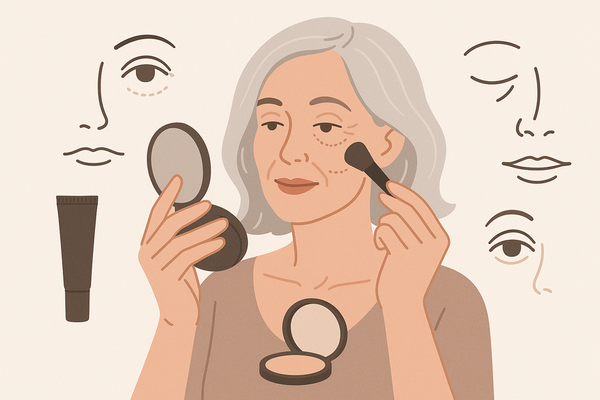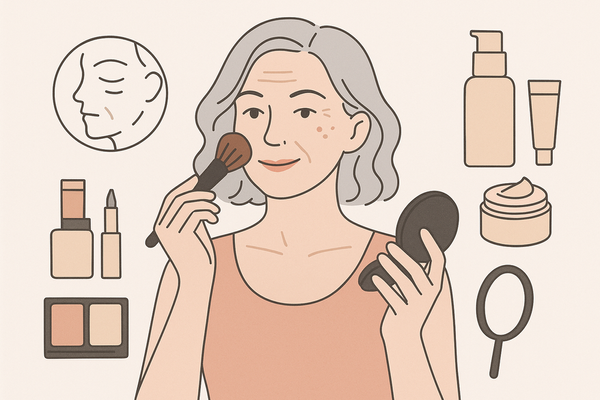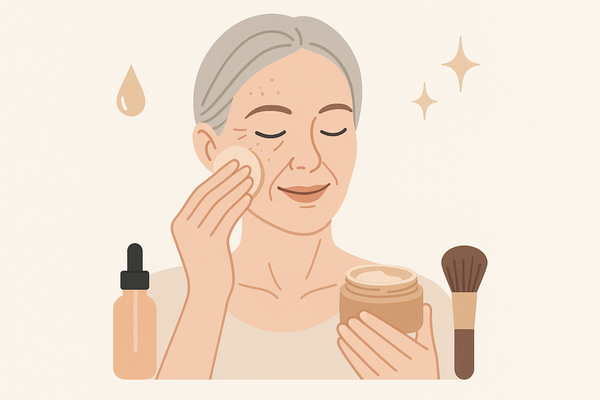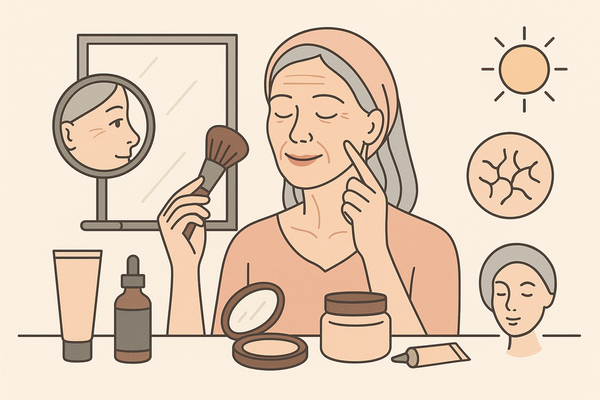Exploring the Revolutionary Adaptive Makeup Correction App
Discover how adaptive makeup correction app technology is transforming beauty with AI makeup generators, offering personalized, real-time digital makeup solutions.
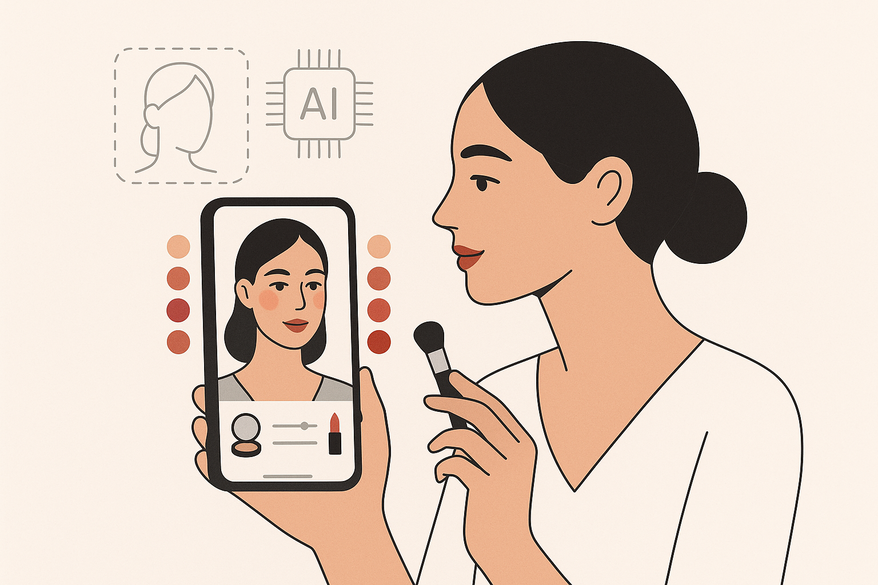
Estimated reading time: 6 minutes
Key Takeaways
- Adaptive AR Beauty: Real-time facial analysis ensures digital cosmetics align with your unique features.
- Personalization & Learning: Machine learning modules refine shade and style suggestions based on user feedback.
- Core Technologies: Combines computer vision, CNNs, GANs, and reinforcement learning for ultra-realistic effects.
- Wide Applications: From virtual try-ons and in-store experiences to remote consultations and accessibility tools.
- Future Trends: Emotion-aware makeup, deeper 3D simulations, expanded inclusivity, and privacy considerations.
Table of Contents
- Section 1: Under the Hood of an Adaptive Makeup Correction App
- Section 2: What Is an AI Makeup Generator?
- Section 3: Essential Features of an Adaptive Makeup Correction App
- Section 4: Real-World Applications of Adaptive Beauty Technology
- Section 5: The Future of AI Makeup Generators and Adaptive Apps
- Conclusion
- FAQ
Section 1: Under the Hood of an Adaptive Makeup Correction App
Facial Recognition & Mapping
- Smartphone cameras capture high-resolution facial data.
- AI-powered computer vision pinpoints eyes, lips, brows, and cheeks.
- Landmark mapping ensures virtual makeup aligns precisely with features.
Real-Time Image Analysis
- Continuous scanning of ambient light, skin texture, and contours.
- Dynamic AR overlays adapt to shadows and highlights instantly.
- Ensures virtual lipstick or eyeshadow stays true under any condition.
Adaptive Machine Learning Algorithms
- Feedback loops track user selections, touch-ups, and corrections.
- The system learns preferred shades, strokes, and styles over time.
- Personalized recommendations become more accurate with each session.
Personalized Simulations
- AR + AI blend to render makeup that respects skin tone gradients.
- Face-shape detection tailors contour and highlight placement.
- Users see realistic previews that move with their expressions.
By fusing mapping, image analysis, and adaptive models, these apps deliver interactive beauty labs in your pocket. Real-world examples like YouCam Makeup and PulpoAR showcase seamless virtual makeovers that feel and look genuine via virtual makeup try-on beauty tech.
Section 2: What Is an AI Makeup Generator?
Definition
An AI makeup generator is a module that uses computer vision, deep neural networks, and large-scale beauty datasets to propose or autonomously apply virtual cosmetics. It tailors digital looks to facial data, style preferences, and current trends.
Core Technologies
- Convolutional Neural Networks (CNNs) detect facial landmarks and texture patterns.
- Generative Adversarial Networks (GANs) render ultra-realistic makeup shades and blends.
- Reinforcement Learning fine-tunes suggestions based on user interactions.
- Cloud-based AI services speed up processing and model updates.
Comparison with Traditional Makeup Apps
| Traditional Apps | AI-Powered Apps | |
|---|---|---|
| Adaptation | Basic AR filters | Real-time calibration to light, angle, and expression |
| Personalization | Manual shade selection | Data-driven, hyper-personalized suggestions |
| Learning | No feedback loop | Continuous improvement via user behavior |
In short, an AI makeup generator brings intelligence behind each swipe and tap, moving beyond static filters by analyzing unique facial traits and refining its suggestions over time. Learn more about the future of beauty tech with AI makeup coach future of beauty tech.
Section 3: Essential Features of an Adaptive Makeup Correction App
- Real-Time Facial Mapping & Makeup Application: Instantaneous AR overlays track expressions and head movements.
- Hyper-Personalized Recommendations: Shade suggestions match skin tone, undertone, and face shape.
- Instant Lighting & Angle Adjustments: Algorithms recalibrate for changing ambient light.
- Virtual Product Trials: Test lipsticks, eyeshadows, and highlighters from leading cosmetic brands.
Section 4: Real-World Applications of Adaptive Beauty Technology
- Daily Makeup Planning: Experiment with color palettes risk-free before physical application.
- Virtual Try-Ons In-Store and Online: Scan barcodes or product images to load virtual swatches.
- Remote Professional Consultations: Share AI-enhanced visuals during video calls for accurate advice.
- Accessibility for Visually Impaired Users: Voice-enabled tools guide each makeup step.
Section 5: The Future of AI Makeup Generators and Adaptive Apps
- Deeper AR+AI Convergence: Ultra-realistic 3D makeup simulations with texture mapping.
- Expanded Accessibility: Enhanced recognition models for all skin tones, ages, and facial features.
- Next-Gen Personalization: Mood-aware suggestions via emotion detection.
- Key Challenges: Protecting user privacy, eliminating algorithmic bias, and ensuring device compatibility.
Conclusion
Adaptive makeup correction apps, powered by sophisticated AI makeup generator technology, bring personalized, real-time beauty solutions to every user. By combining facial mapping, machine learning, and augmented reality, these tools deliver natural, dynamic makeup looks that adapt to light, angle, and expression. They foster creativity, promote inclusivity, and drive industry innovation.
For a hands-on exploration, check out Makeup Check AI to experience instant virtual makeup generation and analysis. Here’s a quick look at how it works:
Ready to transform your beauty routine with tomorrow’s technology? Give it a try and see personalized looks in seconds.
FAQ
- How does the app adapt to different lighting conditions?
The real-time image analysis module continuously scans ambient light and adjusts AR overlays so makeup appears natural in any environment. - Is my facial data secure with these apps?
Leading apps employ end-to-end encryption, anonymize stored landmarks, and comply with privacy regulations to protect your biometric information. - Can I try products from my favorite brands?
Yes, many adaptive beauty apps partner with cosmetic brands to offer virtual product trials, letting you test lipsticks, eyeshadows, and more before purchasing.

